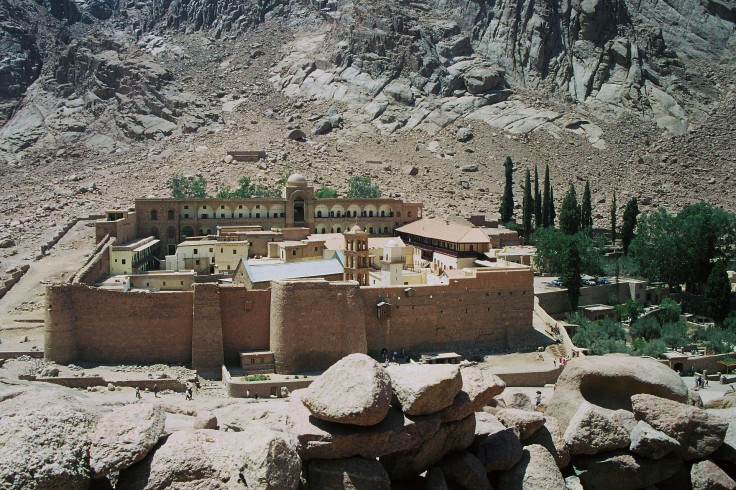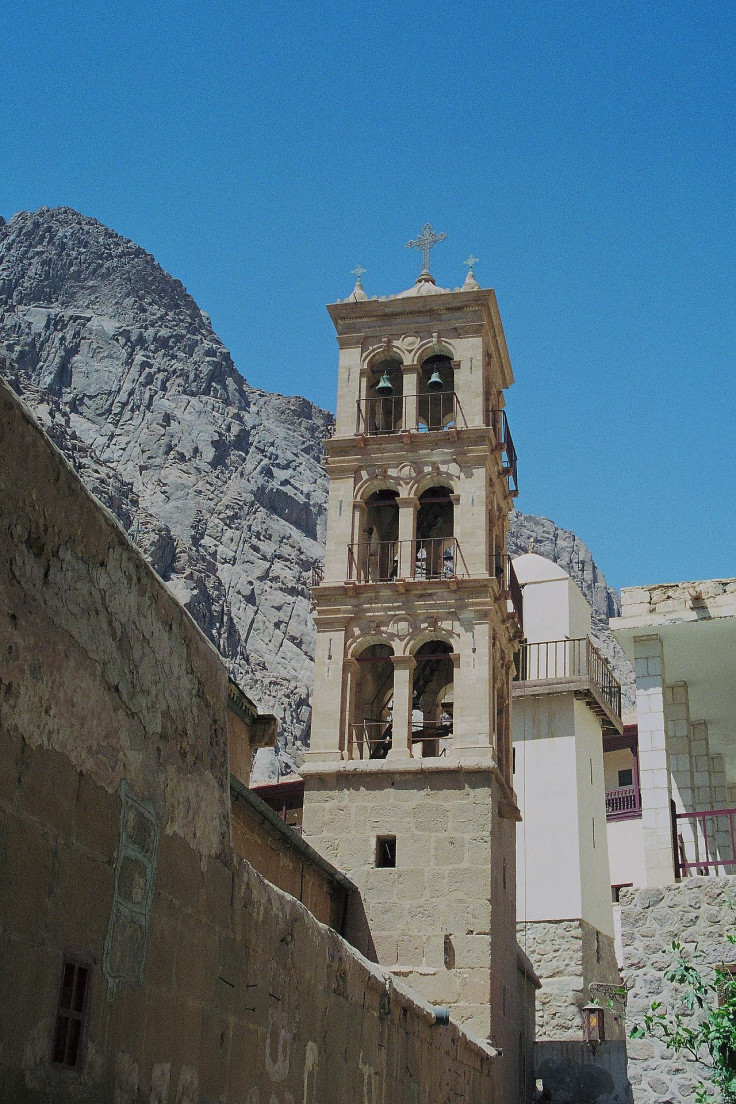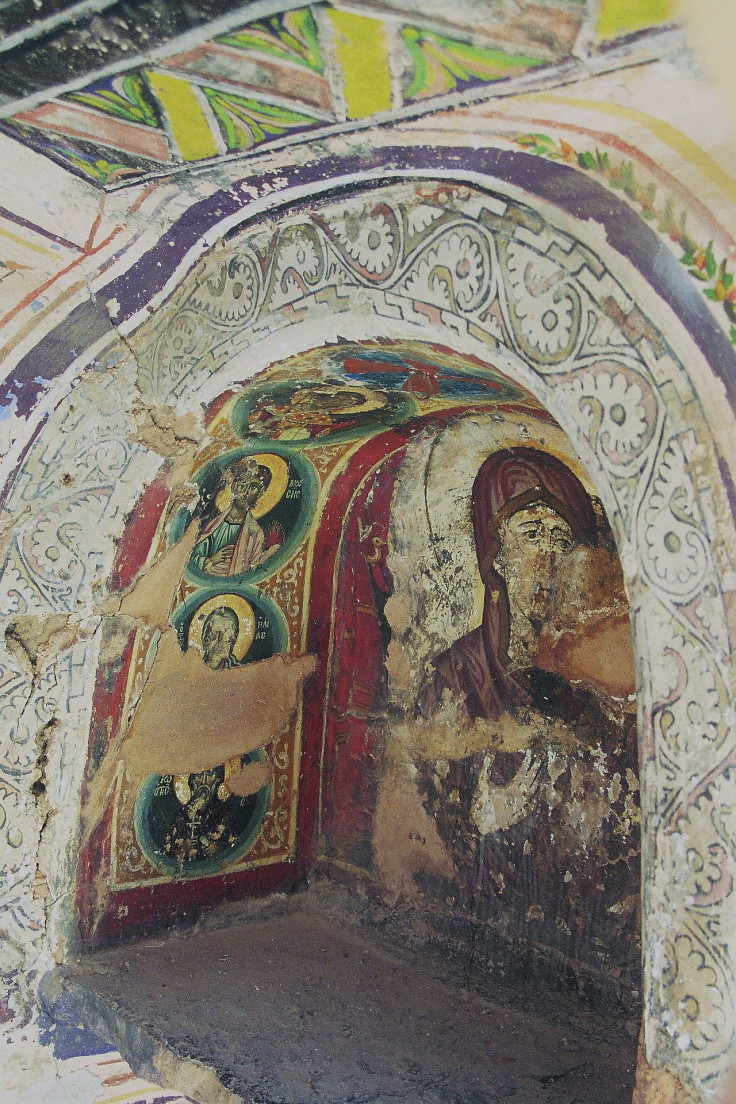Scientists Uncover Lost Ancient Languages In Egyptian Monastery

Scientists have uncovered lost ancient writings on parchment in Egypt, including ones jotted down in rare languages, that could give them a window into the past.
The Times reported that researchers used imaging technology to illuminate words that were written onto parchment before the ink was washed and wiped away and new text written over it. The hidden text included words written in Caucasian Albanian, a language that had previously only been found on some stone inscriptions. Three medical texts written in ancient Greek were also brought to light, including some written by Hippocrates, the groundbreaking ancient Greek physician for whom the Hippocratic Oath, the ethical oath that modern doctors take, was named.
Parchment was often used more than once because it was expensive, and some of the material that is housed in the library at the Saint Catherine’s Monastery, on the southern part of the Sinai Peninsula — which hangs between the Arabian Peninsula to the east and the rest of Egypt to the west — dates back hundreds of years, as the library itself is almost 1,500 years old.
Saint Catherine’s, officially called Sacred Monastery of the God-Trodden Mount Sinai, is at the foot of Mount Sinai, the place where the Book of Exodus in the Old Testament says Moses received the Ten Commandments from God.
The scientists used imaging technology that involves photographing the parchment from different angles and using light from different parts of the spectrum to reveal the ink remnants of the texts previously written on the parchment. When pairing the images with a computer algorithm, the scientists can show what was once there.
They are expected to reveal more information about the texts after more thoroughly studying them.
“At some point the material the manuscript was on became more valuable than what was written on it,” researcher Michael Phelps, from the Early Manuscripts Electronic Library in California, told the Times. “So it was deemed worthy of being recycled.”
The imaging technique could be used to bring even more hidden and lost texts to light. According to the Daily Mail, monks often wiped away old texts to instead use the parchment to transcribe copies of the Bible, like they did with these parchments. Some of the long-lost writings that could be waiting to be found around the world may include documents by the ancient Greek philosopher Aristotle.


“The age of discovery is not over,” Phelps told the Times. “In the 20th century new manuscripts were discovered in caves. In the 21st century, we will apply new techniques to manuscripts that have been under our noses. We will recover lost voices from our history.”
The Independent notes that the scientists uncovered the lost texts at Saint Catherine’s as its future is threatened by the terrorist group ISIS and other extremist Muslim groups that target and destroy Christian sites.
If anything were to happen to Saint Catherine’s, the researchers would at least have documentation of the rare texts and languages that they already uncovered.
“I don’t know of any library in the world that parallels it,” Phelps told the Times. “The monastery is an institution from the Roman Empire that continues operating according to its original mission.”
© Copyright IBTimes 2024. All rights reserved.





















